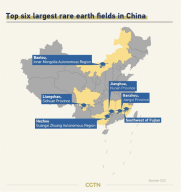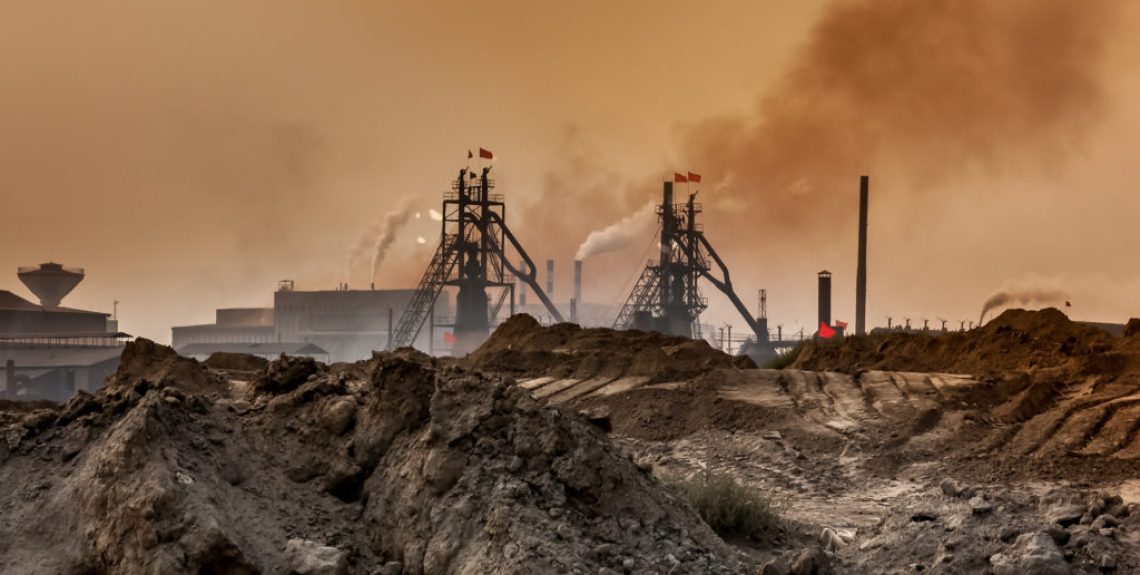The debate on Russian energy during the tragic war in Ukraine is part of a wider debate on CRM (Critical Raw Materials) to which Rare Earth Elements belong. These elements are in reality not so rare on the planet, but significant concentrations of them are and even more rare are the countries well equipped to mill, refine and extract the final product.

China is still the major mining country (but with a reduction from 92% in 2010 to 50% in 2020 in global terms), and it is surely dominant in the supply of finished products with 85% of the share. This fact is the basis for a parallel debate on what is called dependence from a country in CRMs. Part of this debate is purely ideological, because globalisation is based on interdependence on a lot of very important materials and services: it makes no sense to decry one country’s dominant position, if other monopolies or oligopolies are allowed to exist undisturbed by any antitrust and anticartel legislation.
This does not mean that one should ignore hyper-dependence, especially if there is no reciprocity in another comparable level. These considerations were utterly ignored by the Trump presidency, that caused considerable damage to national and globalised interests alike.
A first lesson to be drawn is that China built up its competitive position due to consistent political engagement and state-steered investments in order to ensure optimal results both in extraction, transformation and production of finished products. One of the main levers has been the constant verticalization of the industrial sector. If turbo-capitalism engenders oligopolies or monopolies, state capitalism obtains the similar results with the advantage that these conglomerates are accountable to a recognisable political authority, while ecological damage is similar and similar are timings of ecological recovery processes after due community and political formal and informal pressure.
A second issue is based on the perception and the narrative of Beijing’s preponderance in the sector, exacerbated by the inflamed debate on the importance of Russian gas imports.
The first point in this argument on China is made by a temporary interruption in deliveries to Japan and a single threat of delivery reduction to the USA: the facts are real, the actual consequences minimal for the time being.
The second regards different Chinese efforts to create a dominant position through a tiered licensing system: a project that foundered under different lost lawsuits within the World Trade Organisation. WTO’s arbitration mechanism worked, but now it is blocked by the USA failing replace the missing judges.
The third strand links the Russian predominant role in the Platinum Group Metals (which includes also palladium) to China, connecting this role to possible synergies along the Polar Silk Route or to the objective political and strategic friendship proclaimed at the beginning of the Winter Olympics. In this way a simple and rather frequent fact of commercial life is gradually transformed into a strategic threat, dangerously conflating economic issues and security problems.
The third take-away regards the notion of dependence and its manipulation at political level. In many cases the real relation between a strategic commodity producer and his customers is of interdependence, because both sides need that commodity and both profit from the trade (producers get money, customers get their margin on high-end final products) and in general because embargos by the producers are costly, counterproductive and short-lived. Importers’ needs should induce these actors towards a coordinated approach in purchases, but their “dependence” is even more underlined by fratricide competitions to get these goods (and what happened with vaccines’ supplies during the pandemic was simply appalling), producing a direct damage to their own interests. Thinking that actual “free market” actors and mechanisms are capable to manage this problem is rather unrealistic, on the simple basis of past experience; therefore, a stronger decision-making role of national governments or states is better suited to level the playing field with authoritarian governments.
Finally, interdependence is much more that a feature of globalisation, it is the essential and existential characteristic of planet Earth as complex system. Until yesterday, when one lived under the illusion that there were no limits, still new lands to be explored/conquered, resources to be discovered and plenty of arable land, water and clean air, national interest was the lodestar in evaluating and deciding over strategic matters. Today it is clear that this nation-state or national-government entity, no matter how big, is inherently incapable to grasp the extent and importance of the actual challenges, not to speak about the ability to take and carry out coherent and sensible decisions following existing decision-shaping parameters. This suggests that a common good paradigm should be gradually adopted by major countries among themselves and vis-à-vis less powerful ones in order to prepare in common a more sustainable future.
Alessandro Politi
Director of the NATO Defense College Foundation






















